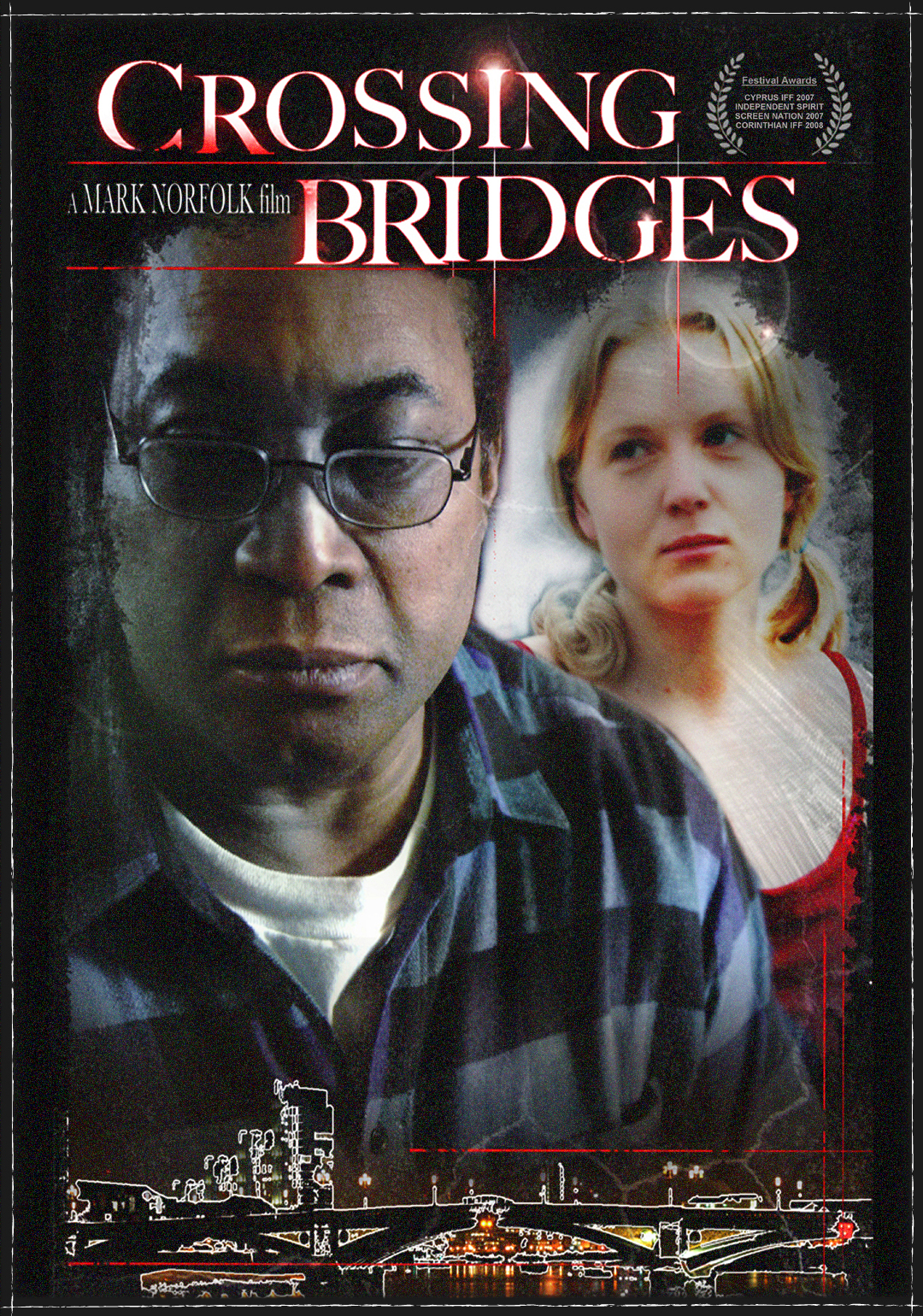A Mark Norfolk's Film
Prussia Lane Productions
- Genre:
- Runtime: 96’.
- Writer, Director: Mark Norfolk
- Cast: Jason Rose, Jeffrey Kissoon, Kelli Kersalke, Elisabeth dahl, Polly Naler, Riley Stewart, Avin Shah, Troy Glasgow.
- Year: 2005
- Country: UK
A Mark Norfolk's Film
Prussia Lane Productions
- Genre:
- Runtime: 96’.
- Writer, Director: Mark Norfolk
- Cast: Jason Rose, Jeffrey Kissoon, Kelli Kersalke, Elisabeth dahl, Polly Naler, Riley Stewart, Avin Shah, Troy Glasgow.
- Year: 2005
- Country: UK
Synopsis
Julius Beauregard has lost his job, his wife and his only child. But just as he decides to end it all he meets an angel and takes her on a journey through the entrails of his own mind.
Shot on 35mm around Lewisham in a mere eleven days and under a strict regime of one take only, the film is undoubtedly a uniquely original independent film. There's an undeniable bonus in the wonderful rock soundtrack by Kerry Hope Kavanagh of UK indie band The Fellows.
Awards & Festivals
- Official Selection: European Independent Film Festival,
- Screen Nation Film and TV Awards: Winner Independent Spirit Award
- Official Selection: Bite The Mango Film Festival, UK.
- Official Selection: UK Film Focus
- Cyprus International Film Festival: Winner Best Editing
- Corinthian International Film Festival, Greece: Winner Audience Award
- Black International Cinema Festival, Berlin, Germany: Special Mention
Press Reviews
LIFO – 19/04/07
In one of the most festival-like moments, during 2nd Cyprus International Film Festival which comes to a close tonight, the Israeli documentarist expresses his questions and reservations to British director Mark Norfolk on the last’s film ‘Crossing Bridges’. ‘Why did you have to confuse me, you did this on purpose; there are six points in your film I don’t understand, why didn’t you just tell your story from A to Z?’ The smiling and active British director tries to explain that an avant-garde art film does not simply seek to narrate a story from the beginning to the end, but to tell a story (or more) in a way that would make the viewer think. ‘That was my intention, to generate a conversation like this one we are having’ he explains. ‘So you admit it; you confused me on purpose’ the Israeli insists. This conversation forced me to go back, in a time when we innocently asked questions on films we felt as important, yet couldn’t completely understand. Once a woman told Picasso: ‘I don’t understand it but I like it’; ‘It’s ok’, he answered, ‘You don’t understand shellfish either, but you still very much enjoy eating them’.
Cyprus International Film Festival, having Phedon Papamichael as its artistic director and Nikos Koundouros as head of the Jury Committee, taking place this year for the second time, aims to create more opportunities for investment in the field of film production in Cyprus. Unbelievable though it may seem, this is the first film event ever organised in Cyprus, as CEO Petra Terzi remarked. Producers from abroad have expressed their interest, which comes naturally if one considers the warmth and natural beauty of the location. It is true that the festival could play an important role in the Middle East area (as it will have to compensate for the necessarily minor domestic film production, in order to generate a wider interest), by inviting films of a significant style. However, it is too soon to make a judgement and the festival still deserves to be hosted in a special venue in Nicosia to help rise its profile, rather than insisting on Multiplex venues in three different Cypriot cities.
Among the festival highlights were a number of exclusive premieres of films, such as ‘10 items or less’ starring Morgan Freeman and Paz Vega, which have not been yet presented in Greece, as well as the very well-made ‘Golden Beach’ by Jüri Sillart from Estonia, which develops around the -emotional and filled with secrets from the past- reunion of the members of a music band. Still, Norfolk’s film marked the most impressive participation at the festival, despite the confusion it may caused to the Israeli Tzvika Vloch. Crossing Bridges is a combination of many things; it is a frantic ode to London’s 23 bridges; the spiritual trip of the main character Julius Beauregard, a man who has lost his job, his wife and his only child; the contradiction between East and West within just a few blocks; and, as I saw it, a religious tale on the loss of hope.
Norfolk urged to correct me on that last remark. He does not consider himself as a religious person, as I thought, and is not a baptised Christian; yet he included in his film the view of suicide as a sin – at least I was correct in that sense. Above all, this film constitutes a special tribute to the famous London bridges, which it depicts with affection and admiration. As I come to think about it, a bridge is a place for the tourist, the unemployed and the suicidal type. Excluding the tourist, an unemployed suicidal type alone can make the subject of a film. Adding a blonde angel to the story, he finds the way to restore his abruptly lost human relationships. Or is he just dreaming? In the field of human unconscious, films have yet a lot to explore.
By Theo Koutsogiannopoulos
(Translation by Marianna Kaplatzi)




